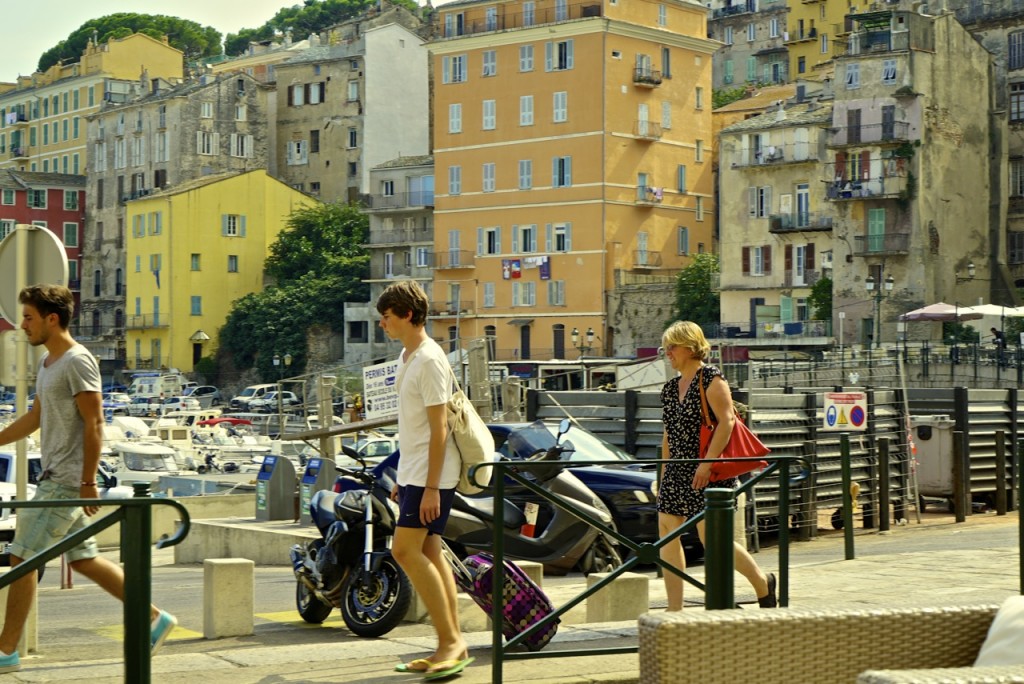In his second Huffington Post article on "place-decoding," Chuck Wolfe argues for considered attention to enhancing people's abilities to discern the city around them.
 In his second article written from France, Wolfe argues for enhanced opportunities for "place decoding" and distinguishes directed responses to the urban environment from intuitive opportunities to experience the city in context:
In his second article written from France, Wolfe argues for enhanced opportunities for "place decoding" and distinguishes directed responses to the urban environment from intuitive opportunities to experience the city in context:
Sensing the city is a personal experience owned by each of us. From a legal perspective, it is an urban property right that transcends public and private domains. It is a form of place-decoding that deserves more illustration and attention.
By illustrated example, he contrasts simple forms of urban interpretation, such as experiencing the commercialized smell of a street in Grasse, France (engineered by a large perfume manufacturer), with the more complex challenge of visually interpreting the multi-layered city such as Bastia, Corsica, where "small pockets of old blend with the new and lines of sight span the ages and associated technologies".
Accordingly, Wolfe stresses the importance of understanding who, respectively, are the leaders and followers in the urban experiential adventure and suggests supplementing cutting edge activism with a more holistic, experiential point of view.
He highlights efforts aimed at enhancing people's ability to sense the city, such as Adelaide, Australia's well-presented "Picture Adelaide 2040" project, Stage 1 of which centers on gathering 1000 stories from citizens (each with a photo) on how they use their favorite urban places. He also underscores the value of "how-to's", such as community classes, meet-ups, school curricula, training of political officials and sensitizing of loan.
Wolfe concludes:
We can urge our political leaders, our planners, our designers and real estate professionals that encouraging people to sense the city deserves a high priority in policies, plans and pro-formas. Better cities will not result from a mandated smell this, or see that mindset.
Rather, better cities are more apt to happen if we first learn how to smell and see, a Place-Decoding 101 class affordable to all.
FULL STORY: The Option of Sensing the City

Planetizen Federal Action Tracker
A weekly monitor of how Trump’s orders and actions are impacting planners and planning in America.

Map: Where Senate Republicans Want to Sell Your Public Lands
For public land advocates, the Senate Republicans’ proposal to sell millions of acres of public land in the West is “the biggest fight of their careers.”

Restaurant Patios Were a Pandemic Win — Why Were They so Hard to Keep?
Social distancing requirements and changes in travel patterns prompted cities to pilot new uses for street and sidewalk space. Then it got complicated.

Platform Pilsner: Vancouver Transit Agency Releases... a Beer?
TransLink will receive a portion of every sale of the four-pack.

Toronto Weighs Cheaper Transit, Parking Hikes for Major Events
Special event rates would take effect during large festivals, sports games and concerts to ‘discourage driving, manage congestion and free up space for transit.”

Berlin to Consider Car-Free Zone Larger Than Manhattan
The area bound by the 22-mile Ringbahn would still allow 12 uses of a private automobile per year per person, and several other exemptions.
Urban Design for Planners 1: Software Tools
This six-course series explores essential urban design concepts using open source software and equips planners with the tools they need to participate fully in the urban design process.
Planning for Universal Design
Learn the tools for implementing Universal Design in planning regulations.
Heyer Gruel & Associates PA
JM Goldson LLC
Custer County Colorado
City of Camden Redevelopment Agency
City of Astoria
Transportation Research & Education Center (TREC) at Portland State University
Camden Redevelopment Agency
City of Claremont
Municipality of Princeton (NJ)


























